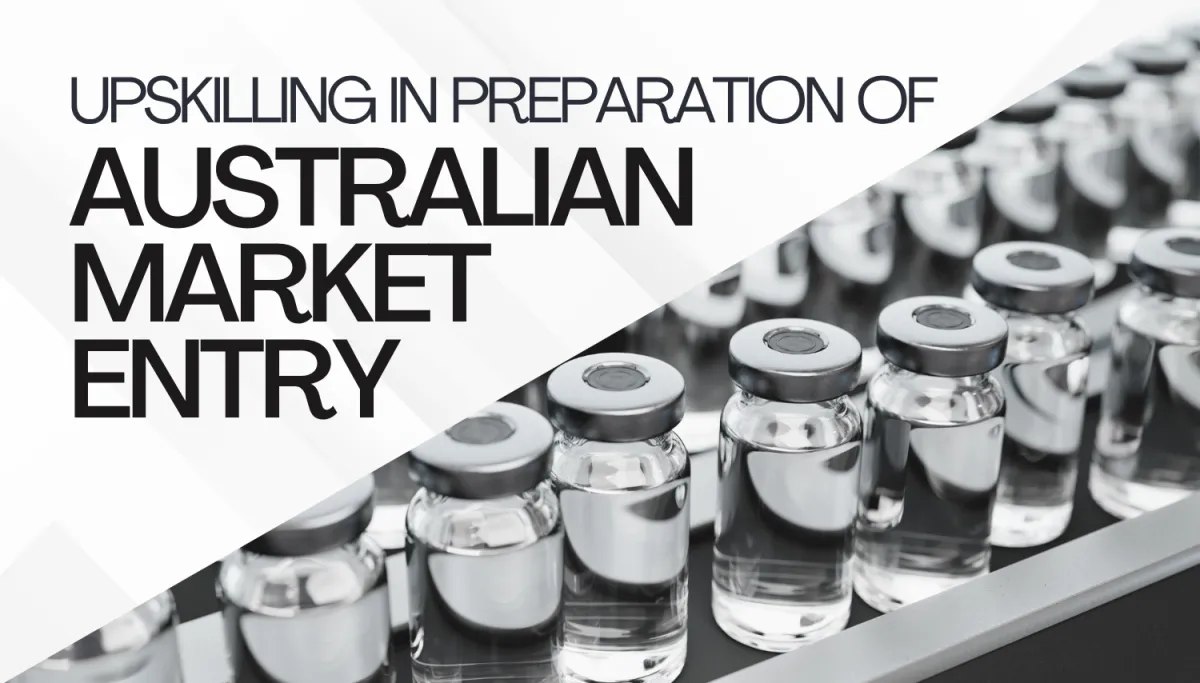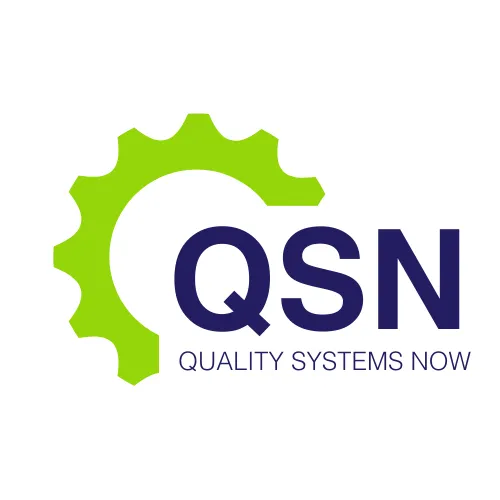NEWS

Upskilling in Preparation of Australian Market Entry
The Australian therapeutic goods market is tightly regulated under the Therapeutic Goods Act 1989, and entry into this market requires a comprehensive understanding of Good Manufacturing Practice (GMP) compliance, regulatory submissions, product registration pathways, and post-market obligations. For American manufacturers, testing laboratories, and biotechnology companies, aligning internal systems with the expectations of the Australian Therapeutic Goods Administration (TGA) is essential to avoid regulatory delays and ensure successful market access. Upskilling personnel and establishing regulatory readiness prior to entry is therefore not optional but a strategic necessity.
QSN Academy, a leading provider of GMP and regulatory compliance training, facilitates targeted upskilling programs to prepare stakeholders for the specific demands of the Australian environment. This scientific-style article details the required competencies, regulatory frameworks, and training strategies that underpin a successful market entry approach.
Understanding the Regulatory Landscape
The TGA, operating under the Department of Health and Aged Care, regulates all therapeutic goods supplied in or exported from Australia. These include prescription and over-the-counter medicines, complementary medicines, medical devices, biologicals, and in vitro diagnostic (IVD) devices. Before a product can be legally marketed, it must be included in the Australian Register of Therapeutic Goods (ARTG), unless exempt or excluded.
For U.S.-based companies accustomed to Food and Drug Administration (FDA) oversight, it is critical to recognise the similarities and divergences between the FDA and TGA systems. While both agencies uphold international harmonisation principles (such as those from ICH, PIC/S, and ISO), Australia has distinct procedural, documentary, and labelling requirements. Failure to appreciate these differences can result in costly delays, non-compliance findings, and even product refusals.
GMP Certification and Licensing Requirements
A foundational component of market entry is demonstrating compliance with GMP standards as assessed by the TGA. For medicines, manufacturing sites (domestic or overseas) must hold a GMP licence or GMP certification granted by the TGA. This certification is based on evidence, which may include previous inspections by the TGA or recognised regulators under mutual recognition agreements (MRAs), or an on-site inspection by TGA personnel.
American manufacturers cannot assume automatic equivalency of their FDA inspections. TGA evaluations involve a unique set of requirements, particularly around documentation, deviation handling, change control, validation, stability, and quality risk management. Upskilling in these domains is imperative. Through QSN Academy, training modules are tailored to bridge these knowledge gaps and equip quality and regulatory personnel with actionable competencies.
Product Registration Pathways
Another core competency area involves understanding the product registration process. Products must be evaluated for quality, safety, and efficacy before being included in the ARTG. Depending on the classification and risk level, applications may follow the prescription medicines pathway (Category 1 or Category 3), complementary medicines pathway, or medical device conformity assessment model.
Each route has different dossier requirements, evaluation timelines, and fees. For instance, prescription medicines require a full Common Technical Document (CTD) submission, while complementary medicines may follow a listed or assessed listing model. Medical devices must be classified according to Schedule 2 of the Therapeutic Goods (Medical Devices) Regulations 2002, and evidence of conformity assessment is required.
Training professionals in dossier compilation, eCTD structure, and TGA-specific templates is essential to streamline submissions. QSN Academy offers role-based training for regulatory affairs professionals to prepare accurate, compliant, and complete submissions in accordance with current TGA standards.
Evidence Generation and Validation Strategy
TGA expects robust scientific evidence to support the quality and performance of therapeutic products. For medicines and biologicals, this includes validated analytical methods, well-controlled stability studies aligned with climatic zone IVb (Australia’s applicable zone), and comprehensive validation reports for manufacturing and packaging processes.
For medical devices and IVDs, clinical evidence and performance evaluation reports are required to justify intended use claims. A typical area of deficiency noted in TGA non-compliance notices involves inadequately justified performance claims or lack of local data applicability.
Upskilling in scientific report generation, data integrity principles, and TGA expectations for validation protocols and stability strategies forms a core pillar of QSN Academy’s curriculum. We train technical personnel in practical design and execution of TGA-acceptable validation studies, ensuring data packages are inspection-ready.
Post-Market Obligations and Pharmacovigilance
Market entry does not conclude with ARTG inclusion. TGA places strong emphasis on post-market surveillance, including pharmacovigilance for medicines, incident reporting for devices, product recalls, and mandatory annual reporting for certain device classes.
Sponsors are required to maintain up-to-date technical documentation and must respond to TGA Section 31 requests for information with strict timelines. There is also a requirement for Australian-based representatives and ARTG sponsors to maintain communication channels and corrective/preventive action (CAPA) systems.
QSN Academy offers post-market readiness modules to prepare companies for TGA’s expectations in adverse event monitoring, complaints handling, recalls, and periodic reporting. Training also includes the design of fit-for-purpose quality management systems (QMS) aligned with ISO 13485 and TGA guidance.
Sponsor Responsibilities and Local Representation
Foreign companies must appoint an Australian sponsor to act on their behalf in dealings with the TGA. The sponsor is legally responsible for the product and must ensure compliance with all TGA requirements. This includes maintaining product information, facilitating batch release documentation, and executing recalls where necessary.
Understanding sponsor obligations and building a collaborative relationship with Australian agents or subsidiaries is crucial. Upskilling programs should extend to cross-functional teams so that the interface between manufacturer, sponsor, and regulator is seamless and risk-managed.
QSN Academy delivers joint training to both overseas clients and their nominated sponsors in Australia, aligning expectations and operational workflows.
Cultural and Commercial Considerations
While regulatory compliance is critical, successful Australian market entry also depends on understanding commercial and cultural contexts. Australian healthcare providers and consumers place a high value on product transparency, ethical sourcing, and sustainability. Labelling must be clear and in accordance with the TGA’s labelling orders (TGO 91 and TGO 92 for medicines), and consumer-facing materials must not make unapproved claims.
Training in compliant promotional practices, label preparation, and culturally appropriate messaging is therefore essential. QSN Academy integrates these topics into its compliance training to support brand integrity and market trust.
Conclusion
Entering the Australian therapeutic goods market demands thorough preparation and tailored upskilling of all personnel involved in regulatory, quality, technical, and commercial functions. U.S.-based manufacturers and laboratories must not assume regulatory equivalency with FDA standards but should proactively acquire the knowledge and competencies needed to meet TGA requirements.
QSN Academy offers a structured, scientific approach to regulatory upskilling, delivering GMP and compliance training that is specifically aligned with Australian legislative frameworks. By investing in training early, companies significantly improve their chances of timely market access, sustained compliance, and long-term commercial success in Australia’s growing therapeutic sector.
